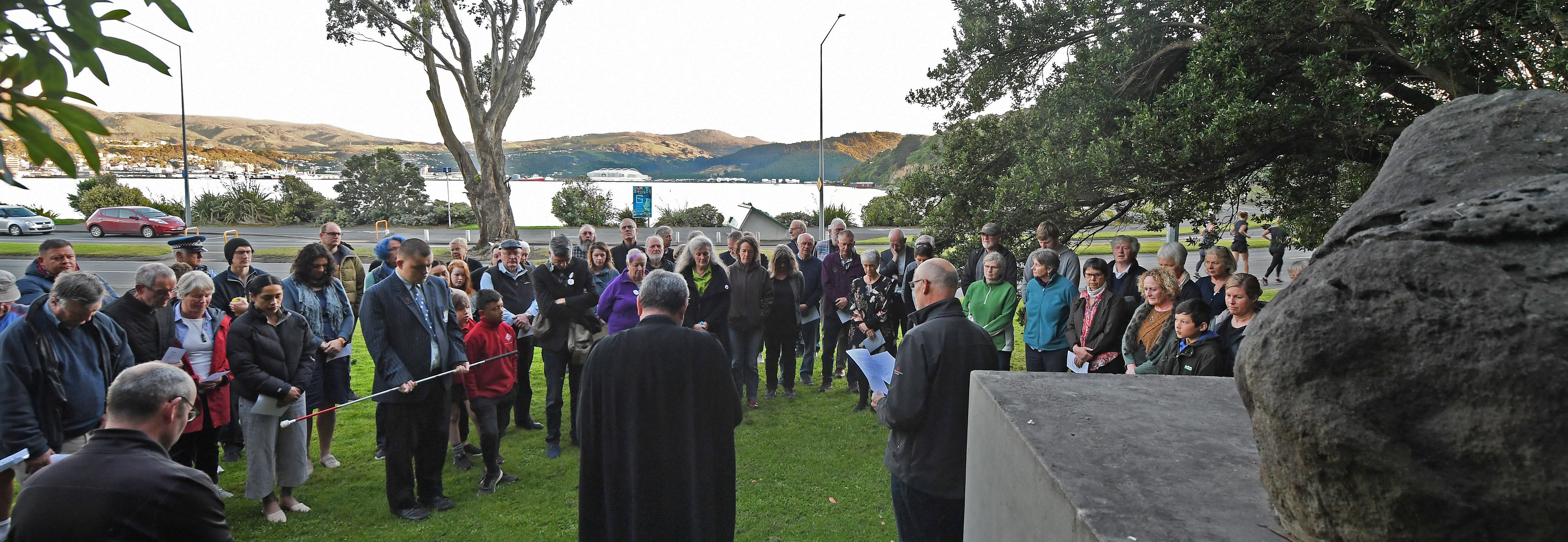Waiata, karakia and stories were offered in Dunedin yesterday to commemorate the people of Parihaka, in Taranaki.
About 50 people gathered at the Rongo Stone Memorial in Andersons Bay - which commemorates the 211 Maori prisoners transported to Dunedin between 1869 and 1879 -for the remembering Parihaka dawn commemoration service.
Tonga Karena travelled from Parihaka for the service to speak on behalf of the community and express their thanks to Dunedin for commemorating her people.
The service was organised by University of Otago Maori theology lecturer the Rev Dr Wayne Te Kaawa and Flagstaff Community Church minister the Rev Brendon McRae who have arranged Dunedin services since 2017, the year a formal apology was delivered by the Crown for its actions in Parihaka.
‘‘[The service] was open, relaxing, calm and gentle,’’ Dr Te Kaawa said.
It was emotional for people who had been inspired by Parihaka, their peace movement, and passive resistance.

On 5 November 1881, about 1600 troops invaded Parihaka which had become a centre for peaceful resistance to the confiscation of Maori land by European settlers.
Troops were met by several thousand Maori sitting quietly on the marae and singing children.
Parihaka’s leaders Te Whiti-o-Rongomai and Tohu Kakahi were arrested, much of the village was destroyed, and 405 residents were imprisoned.
It was important to acknowledge that history, Dr Te Kaawa said.
Parihaka people became part of the fabric of Dunedin’s society, as the city continued to benefit from the work they were forced to do.
‘‘As I understand it, they helped build the clocktower at the university, dig up the botanical gardens, the causeway at Andersons Bay, Maori Hill roads - it was all a part of their punishment,’’ he said.
The service was followed by a showing of the documentary The Children of Parihaka at Knox Church, and on Sunday a two-week art exhibition would begin at the Flagstaff Community Church.












